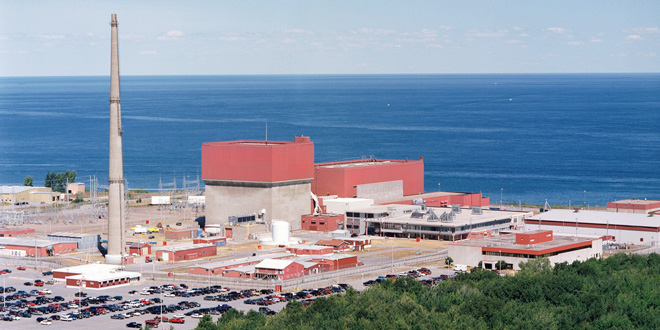By William Opalka
FERC on Wednesday approved Exelon’s acquisition of the troubled James A. FitzPatrick nuclear plant in New York, rejecting a protest that its review should have included the impact of a state-mandated ratepayer subsidy (EC16-169).
Plant owner Entergy told New York officials that without the $110 million sale, the 882-MW plant would close at the end of January. New York regulators approved the transaction last month. (See NY Regulators Approve FitzPatrick Sale.)
But consumer advocate Public Citizen, in a protest filed with FERC in October, complained that the companies omitted information on the zero-emission credit program New York had passed to prop up upstate nuclear plants, which the group argued made the application incomplete. It also said the subsidy itself distorts the New York market and violates the NYISO Tariff. (See Public Citizen Challenges NY Nuclear Subsidy, FitzPatrick Sale.)
Entergy and Exelon said such a review was beyond the scope of FERC evaluation of the sale, which should be limited to whether it gave the buyer excess market power and if the sale was in the public interest.
The commission agreed.
“We will dismiss Public Citizen’s protest of the proposed transaction because the issues Public Citizen raises concern the ZEC program rather than the effects of the proposed transaction on competition, rates, regulation or cross-subsidization,” the commission wrote. “Public Citizen … focuses on the potential effects of the ZEC program on the NYISO market rather than the effects of the proposed transaction.”
FERC said such questions could be addressed in another proceeding, which Public Citizen appears prepared to do.
Tyson Slocum, director of Public Citizen’s energy program, on Thursday said the groups would first ask for a rehearing of this week’s order and later challenge the ZECs under a Section 206 proceeding.
Slocum said he found FERC’s rationale “very strange” for limiting the scope of order.
“It’s very clear that the transaction would not have occurred without the ZEC program,” he said. “But there was no review of how [ZECs] will affect market power, pricing and how it gives [the plants] a competitive advantage.
“FERC is acting as if these changes to the market don’t exist,” Slocum added.
Critics of the ZEC program say it will cost ratepayers $7.6 billion over its 12-year life. New York says the program helps combat climate change and its costs are more accurately measured by the federal “social cost of carbon” calculation.
After the Nuclear Regulatory Commission gives its approval and the deal closes, Exelon will be the sole owner of the upstate nuclear fleet, which consists of three plants that make up 5.9% of the state’s generation.




